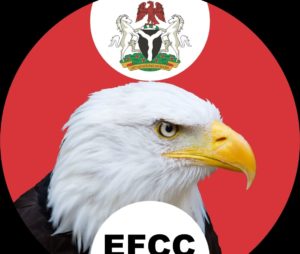The Economic and Financial Crimes Commission (EFCC) is at the center of a growing controversy following reports that jewelry and cash, worth an estimated $400,000, have gone missing from its Lagos office. This alarming incident has sparked widespread concerns about the effectiveness of internal security measures and the overall integrity of the commission’s operations. The missing assets were reportedly linked to an ongoing case under EFCC’s custody, raising questions about the agency’s ability to secure critical evidence in high-profile investigations.
Sources close to the investigation have disclosed that the disappearance of these valuable items is being treated as a serious breach of protocol. As a result, the EFCC has launched a comprehensive internal probe to uncover how the theft occurred and identify those responsible for the missing assets. With the commission now under intense scrutiny, both internally and externally, this incident has led to broader concerns about potential lapses in the agency’s safeguards and its capacity to maintain public trust.
Ten EFCC Officers Detained Over Missing Assets
In an attempt to address the scandal, the EFCC has detained ten of its officers in connection with the missing cash and jewelry. The officers, who are believed to have been in direct contact with the secured items, are being questioned about their involvement and any potential complicity in the theft.
The detention of these officers has added fuel to the fire, with critics questioning whether corruption is deeply rooted within the agency itself. Observers are now calling for a transparent investigation to ensure justice is served and that the integrity of the commission is not further tarnished.
Allegations of Corruption at EFCC Gaining Traction
The disappearance of such a significant sum has led to widespread speculation about the possible involvement of high-ranking EFCC officials. Allegations of corruption within the agency have been circulating for some time, but this incident has pushed the debate into the public spotlight.
Many are now asking whether the EFCC, an institution charged with fighting corruption, has itself become a breeding ground for unethical behavior. This scandal has raised doubts about the agency’s ability to lead by example and effectively combat financial crimes in Nigeria.
Economic and Financial Crimes Commission Under Intense Public and Political Scrutiny
Public outcry has been swift, with many Nigerians questioning the level of oversight at the EFCC and its ability to handle sensitive investigations. Political leaders have also joined the debate, with some demanding immediate action and a comprehensive review of the agency’s operations.
Opposition figures have used the scandal as an opportunity to criticize the current administration, suggesting that the Economic and Financial Crimes Commission may be too compromised to carry out its mandate effectively. Calls for a complete overhaul of the agency are growing louder, and the public remains on edge as investigations continue.
Investigators Racing Against Time to Solve the Mystery
As the investigation into the missing assets intensifies, EFCC officials have promised to get to the bottom of the matter. However, the complexity of the case has raised concerns about how quickly justice will be served. The agency is under pressure to find out how such a substantial amount of money and valuable items could have disappeared from its custody without immediate detection.
Investigators are focusing on security footage, surveillance logs, and testimonies from the detained officers to piece together what happened. However, insiders fear that the investigation could be obstructed by individuals within the EFCC who have a vested interest in keeping the truth hidden.
Rebuilding Trust: Can EFCC Recover from This Scandal?
This scandal has undoubtedly damaged the reputation of the EFCC, with many Nigerians questioning the agency’s commitment to transparency and accountability. The disappearance of $400,000 worth of assets has raised doubts about the EFCC’s ability to protect evidence and carry out its anti-corruption duties effectively.
Rebuilding public trust will be a monumental challenge for the Economic and Financial Crimes Commission. Calls for stronger internal checks, external oversight, and a complete restructuring of the agency are now at the forefront of public discourse. As the investigation unfolds, the Nigerian government must decide how to restore confidence in the EFCC’s operations and its ability to fight corruption.
Table of Contents
Discover more from OGM News NG
Subscribe to get the latest posts sent to your email.














